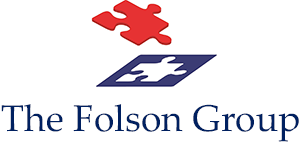Everything Is Negotiable
If you’re a board member of a coop or condo building, you and your board undoubtedly work hard to represent your fellow owners. While owners want you to maintain your shared home at the lowest cost possible, the primary board and management responsibilities are the management of day-to-day operations, as well as special requests and emergencies. This leaves very little extra time to devote to serious cost cutting.
A Business-Analyst Mindset Makes All the Difference
Few boards have the luxury of running their building as a business, simply because they lack the time and/or skill sets required. Most boards find it extremely difficult just to contain costs, and even more difficult to reduce them. However, we’ve found that when you embrace the idea of running your coop or condo building like a for-profit business, you’ll discover an entirely new world of opportunity. At that point, you realize that everything is negotiable. A great example of how this works relates to fixed costs.
But Fixed Costs Are Fixed. . . Aren’t They?
Under a traditional outlook, cost-cutting enthusiasm wanes when board members realize the majority of their costs are “fixed” costs. The board’s managing agent might also agree that reducing fixed costs is impossible. After all, who can argue with the local water authority over costs?
However, when you start running your building like a business, you look at every line item in the budget in a new way. You don’t skip over the fixed cost line items; you analyze those line items, knowing they have the most wiggle room – where the board can have the most impact on reducing costs. Most of your vendors and suppliers will entertain negotiations, and you may find other strategic ways to cut costs.
For example, one of our New York clients felt the increases in their water bills were out of control, but they were discouraged, viewing the water bill as a fixed cost. One issue we uncovered was that most of the toilets in the building were 3 gallons per flush toilets, rather than those that met current standards, which is 1.28 gallons per flush for New York City.
With their new business outlook, the board approved a new policy requiring that every owner upgrade their toilets to current DEP standards when selling or renovating their unit. This simple policy change resulted in a 20 percent reduction in the “fixed” water costs of the building.
You Can Make the Difference
As a board member, you can encourage your board to be proactive in finding opportunities to reduce costs. Coop and condo advisors can assist, but real change will happen when the members of the board embrace the concept that everything is negotiable.
Call The Folson Group today to find out how working with a cost consultant can benefit your multifamily building! Ph: 917.648.8151
